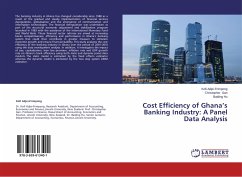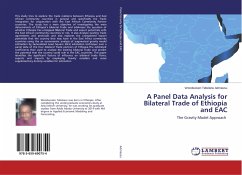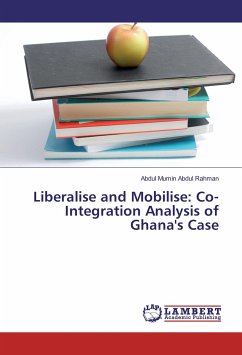
Cost Efficiency of Ghana's Banking Industry: A Panel Data Analysis
Versandkostenfrei!
Versandfertig in 6-10 Tagen
27,99 €
inkl. MwSt.

PAYBACK Punkte
14 °P sammeln!
The banking industry in Ghana has changed considerably since 1988 as a result of the gradual and steady implementation of financial services deregulation, globalisation and the emergence of communication and information technologies. The financial deregulation was undertaken as part of the structural economic adjustment and stabilization program launched in 1983 with the assistance of the International Monetary Fund and World Bank. These financial sector reforms are aimed at increasing banks competitiveness, efficiency and performance in Ghana's banking system that could then contribute in gre...
The banking industry in Ghana has changed considerably since 1988 as a result of the gradual and steady implementation of financial services deregulation, globalisation and the emergence of communication and information technologies. The financial deregulation was undertaken as part of the structural economic adjustment and stabilization program launched in 1983 with the assistance of the International Monetary Fund and World Bank. These financial sector reforms are aimed at increasing banks competitiveness, efficiency and performance in Ghana's banking system that could then contribute in greater measure to stimulate economic growth and ensure financial stability. This study analyzes the cost efficiency of the banking industry in Ghana over the period of 2001-2010 using the data envelopment analysis. In addition, it investigates the impact of size, capitalization, loan loss provision, inflation rate and GDP growth rate on Ghana's bank efficiency using both static and dynamic panel data models. The static model is estimated by the fixed effects estimator whereas the dynamic model is estimated by the two step system GMM estimator.












